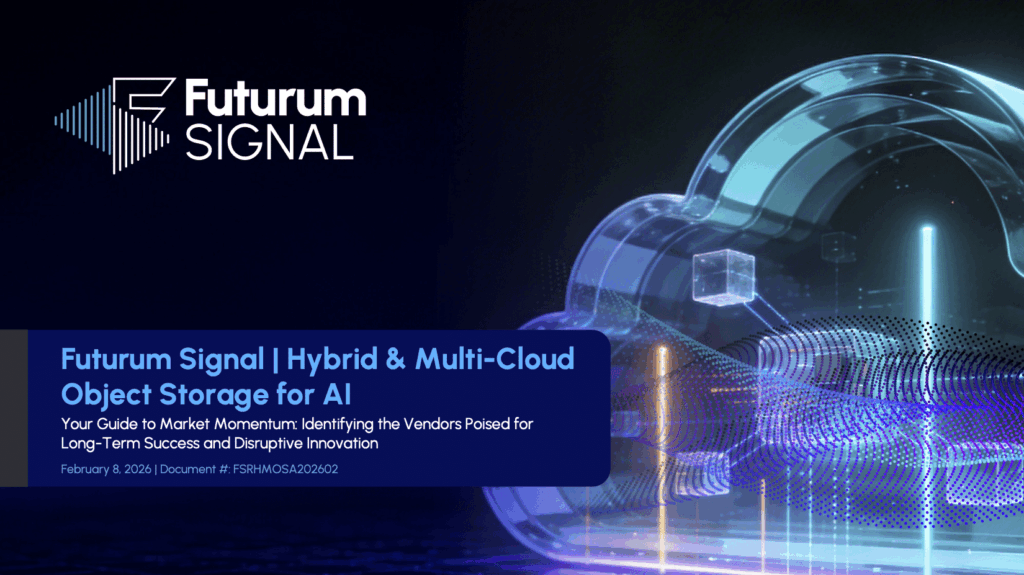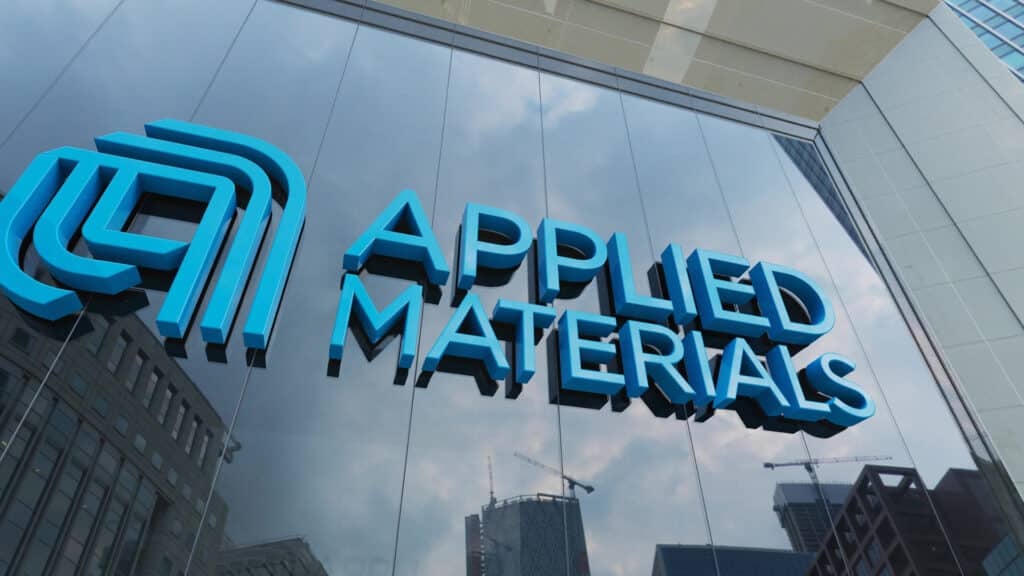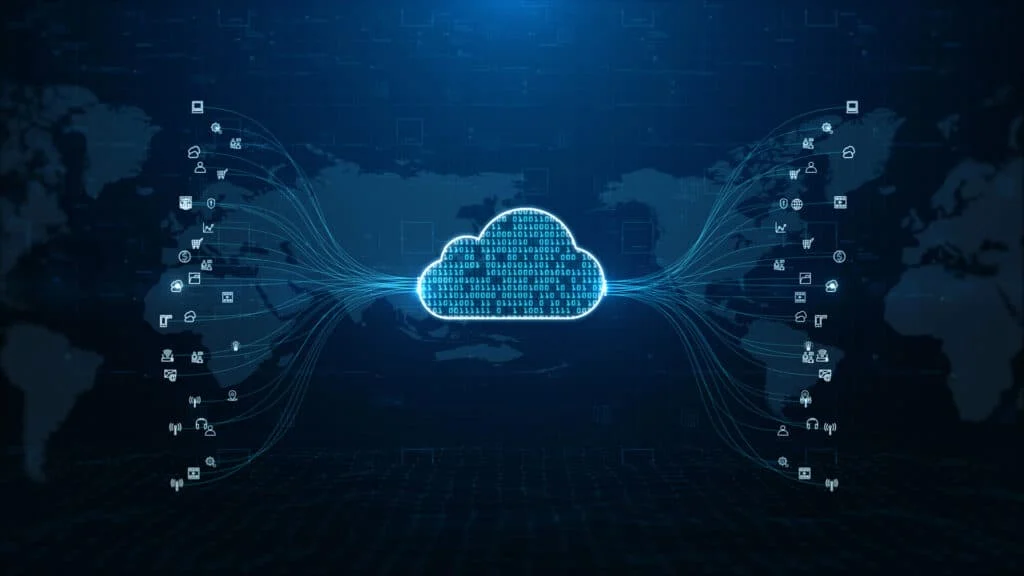What’s AWS’s play with HPE?
From HPE Discover Las Vegas 2025, join David Nicholson as he hosts Andy Palmer, Director of Technology, Strategic Accounts at AWS, for an exploration into how AWS’s deep collaboration with Anthropic and pioneering investments in custom silicon are ushering in a new era of powerful and practical AI for businesses worldwide.
Key takeaways include:
Agentic AI in Production: Uncover the profound shift towards operationalizing agentic AI within the enterprise, with AWS leading the charge in moving AI from experimental stages to full-scale production for transformative business impact in 2025.
Accelerating Generative AI with Strategic Alliances: Explore AWS’s critical partnerships, particularly with Anthropic, designed to fast-track generative AI innovations through joint efforts in technology and infrastructure that significantly enhance AWS customer experiences.
Custom Silicon for AI Performance: Gain insights into groundbreaking advancements in custom silicon, including Trainium2 and Amazon Nova, propelling AWS to the forefront of AI scalability, accessibility, and unparalleled performance.
Unified Data for AI Innovation: Understand the pivotal role of a cohesive data foundation in accelerating AI innovation, as AWS details its strategic approach to seamlessly merge data and AI workloads for superior business outcomes and competitive advantage.
Watch the full video at Six Five Media, and be sure to subscribe to our YouTube channel, so you never miss an episode.
Or listen to the audio here:
Disclaimer: Six Five On The Road is for information and entertainment purposes only. Over the course of this webcast, we may talk about companies that are publicly traded, and we may even reference that fact and their equity share price, but please do not take anything that we say as a recommendation about what you should do with your investment dollars. We are not investment advisors, and we ask that you do not treat us as such.
Transcript:
David Nicholson: Welcome to six five on the Road. Coming to you from HPE Discover Las Vegas 2025. I’m Dave Nicholson and we have a gentleman here from aws, Andy Palmer. Welcome.
Andy Palmer: Hi. Thank you very much for having me.
David Nicholson: What do you do at AWS, Andy?
Andy Palmer: Yeah, good question. So I lead the technical field teams for what we call our strategic accounts business. My teams in particular have depth and expertise in a variety of domains of technology, many of whom you’d probably come to expect everything from data and analytics, AI and machine learning. And now with that, generative AI and some more as well. But no stranger to AWS, I’ve been here for about four years now and was a former customer in Pack for Six.
David Nicholson: Oh, fantastic. Fantastic. Well, so what is the AWS perspective now on? You know, we know where we are, where we’re sort of. We’re in the thick of generative. Absolute. Absolutely. But a lot of buzz is around agentic. Yes, talk to us about that.
Andy Palmer: Yeah, we’re super excited by this, I think it’s safe to say. And the way that we think about this at AWS is our job in helping our customers to kind of democratize and to be able to build these agentic AI experiences really stems from a lot of our investments in infrastructure and security and systems. That shows up a lot for customers today with our Amazon Bedrock service, which is a managed service that we have to build generative AI applications. It has all the tools and resources necessary from the broadest and deepest selection of foundation models for all the tools that you need to be able to customize using your own data. Could be everything from fine tuning, retrieval, augmented generation, and all the security built in. So the best part about it and what customers love, is that since it’s a managed service, you can scale and grow very cost effectively. You’re only paying for what you use, and all the security is built in. So you own your data, you own the keys, it never leaves your account. And so that’s really important for enterprises that they’re trying to build these applications. And you’re right, we’re on this wave to kind of agentic AI. And so we’re spending a lot of time on this, like a lot of folks. And we do have what we call our Amazon Bedrock agents, projects, or product, sorry, rather, which is by far and away the easiest way to get up and running and building agents. And you could go into the console today within just a few clicks and you’re up and running. And so you start by picking a foundation model. We have lots of choices for this, by the way. We have our own proprietary first party models from Amazon that we call Amazon Nova. We’ve got third party models from the likes of Anthropic and even open source alternatives from Metaslama to even Deepsea. And so the model’s job is to really simply break down and orchestrate the technology tasks. Then you define a set of agents, basically just give them some instructions or a goal or maybe an outcome that you want to see and then you can say here’s the access to the data that I want you to have and, or maybe even here are some tools, could be an API to call for example that they can use and that’s it and you’re up and running.
David Nicholson: So one of my favorite words in our business is coopetition. You look at the world of AI right now and you have these clashes of titans at a variety of levels. You mentioned Anthropic on the subject of strategic partnerships. What’s the state of the relationship with Anthropic and AWS? And then how does that line up with the rest of what you were just saying, which is the fact that look, yeah, Meta Llama, whatever you need, AWS is there to be sort of a Switzerland while at the same time doubling down on some strategic relationships. How do you manage it?
Andy Palmer: Yeah, it’s a good question. I think the strategy for us is to continue to offer customers a lot of flexibility and choice. That’s been perennially true for us for a long time and we think that’s gonna continue to be true even in this agentic realm. Just one quick example and I’ll come back to the anthropic question. So we also, for customers who are building agents, they’ve also said to us, hey, we want the ability to do even more rich customization, we want more control, we wanna be able to have access to the code. So we created an offering in open source just a few weeks ago called the Strands SDK. And this is a quickly becoming popular open source agent framework project that gives customers a whole host of choice and flexibility on where they run it and how they run it, even which model they use. So they’re not even constrained to models necessarily on bedrock. They could pull models in from other third party sources to go build these applications. And what we’ve done deliberately and different from, I think other projects out there, is we’ve taken a model driven approach approach, which means rather than having to define and describe relatively rigid workflows and have to be really opinionated, we offload that to the model because these reasoning engines continue to get better and better because of their chain of thought and their abilities to do reflection. And so we see this becoming very popular with customers because what it means is that as the models get better, the outcomes get better and so you’re kind of innovating in place.
But you’re right, Anthropic is a really important partner for us. We’ve been investing with them and collaborating with them for quite a while in a number of ways. I think one of the most interesting ways we’ve been helping them is through hardware and through our own proprietary hardware. So we are right now working on building one of the world’s largest compute clusters ever built to help Anthropic train and develop their next generation model. And that’s running on our own proprietary ML chip that we call Trainium 2. And if you can believe it, the stat, the cluster that we’re building is five times bigger than the one that we just did with them to build Claude 4, which was just announced a few weeks ago, which is by far and away, you know, the world’s state of the art model as it stands today. So just a tremendous compute power that’s coming with this. The thing I think I’m also really excited about in our partnership with Anthropic is working with them in open source on what they call the Model Context Protocol. You may have heard of this MCP. So MCP, as you know, aims to standardize the connection from these agents to data and agents to tools, and it’s just caught in the world by storm. I think a lot of people can see why, because this will totally transform the kind of agentic use cases and capabilities that customers can use and create. But we’ve also acknowledged, hey, there’s more needs to be done to make it ready for enterprises. And that’s where we’re helping Anthropic to make those investments. And even going so far as to say how can we make MCP support agent to agent communication? Because as we now know, that’s going to be a massive unlock and really this proliferation of a potential agent economy. So excited about seeing those developments come forward.
David Nicholson: Yeah, I mean the optimized full stack always makes sense, right? And then also offering other versions of things always makes sense. I happen to use it as a go to. A lot of people who have their first interactions with LLMs are interacting with a trained model that knows nothing about them.
Andy Palmer: That’s right.
David Nicholson: And then you start getting the ability to sort of train it or at least give access to the model, to your own data. And then as an individual, you start going, oh, wait a minute, where’s this data going? Right? I mean, we know that data is at the center of all of this. So true. At the enterprise level, I know that AWS has this concept of the sort of unified data platform. What does that look like? How does an enterprise gather up all of their knowledge and all of their information so that it can be leveraged securely by these models as we.
Andy Palmer: Yeah, that’s right. And you know, and as you kind of alluded to, I think for the longest time our customers have realized that data is their differentiator. And that’s true under any context and circumstance. But I think now that we’re moving into this agentic world, it’s becoming more true now than ever before. And the way I like to think about this as well is we’re kind of entering a world where we’re going to very well see more agents interfacing with data than we have traditionally, say humans and APIs. And so a lot has to change for these agents to be able to successfully power these use cases. And I think of this more like what’s the context engineering that’s going to be required across all of these varieties of data states to make that happen. And there’s a few ways that we’re helping our customers do exactly what you described as kind of unifying both data and AI together. Our SageMaker Lakehouse product, which is something that we just announced several months ago at Re Invent, really aims to pull those data sources together. So, for example, S3 data lakes, which is still by far and away the most popular way that customers are building data lakes today alongside more structured engines and systems like redshift for data warehousing. But even now, the ability to integrate that with third party sources that aren’t even in the AWS environment, to give customers a unified way to query and interact with their data, all on a single copy, by the way, without having to move data around on top of that. The next thing that we do is we’re helping customers unify the actual experience within building the applications. And so bringing together the tools from AWS analytics tools and our AI tools, all wrapped with the right level of collaboration tools to allow teams to be able to work jointly and create the data and prepare the data to go create these AI experiences. And so all the tools for sharing and governance control are all built into that unified experience. And then I’d say the last way that we’re really helping customers and think about this is the thing that we hear most often is we want really fast access to the data. And something that we’ve announced and we’re working on as well is what we call Amazon S3 tables. So this is a purpose built object inside of S3 that natively talks Apache iceberg, which is by far and away the most popular open table format that we see our customers gravitating to. And the fact that it’s built inside of S3 we’ve been able to do a lot of work to optimize the performance. And what customers are seeing is upwards of 3x performance, query throughput performance over maybe self managed iceberg tables inside of S3.
David Nicholson: We nearly got to a point where I don’t have a good calendar in my head, but it was a few years ago. We nearly got to the point with cloud, with aws, where you could look a customer in the eye and say do you really care what silicon this lives on as long as I deliver this service that you’re seeking? And they would think for a moment and they would say no, I don’t, I don’t. But today, interestingly enough, it’s a critical conversation in a lot of places. And AWS is building custom silicon. We talked about this a little bit, just double click on that. Why do you have to build custom silicon? Isn’t there a giant company out there that builds GPUs? Can’t you just buy a bunch of them from them, you know?
Andy Palmer: Yeah, there is a giant.
David Nicholson: Can you just become a subsidiary of that company?
Andy Palmer: There is a giant company out there who we love to partner with.
David Nicholson: Exactly.
Andy Palmer: Yeah, we love to partner. It’s in our DNA to provide I think customers choice and optionality and for a variety of reasons. But we are investing heavily in AI, particularly in hardware and infrastructure. We’ve already committed to spending upwards of $100 billion in just 2025 alone, which is a significant lift even from the prior year as well. And you’re right, a good way we’re doing that is through our own investments in our ML chips. Trainium for training workloads, inferential for inference. Because in every case and circumstance it continues to come up that these customers, you know, cost matters. Yes, it’s always such an inhibitor. And as customers are evaluating their return on investment and what may or may not go to production, that’s usually one of the biggest reasons why. Why maybe something gets shelved and gets put aside. But what we’re finding is these chips that we’ve built, they’re purpose built accelerators designed to do AI training and AI inference from the ground up. And our customers who are using these chips are oftentimes out of the box, seeing upwards of 30 to 40% cost performance benefit, which is a huge enabler for them to get those workloads into production, giving them optionality as well across the potential fleets of accelerators that are out there.
David Nicholson: It’s an interesting comment to make about cost because many of us are insulated from the actual cost. So you have customers that are deploying real things and the real cost is being passed on to them, while the rest of us are paying $200 a month or $20 a month or whatever it is. But we’re not paying for everything that we’re doing because in fact large language model purveyors are investing in this. And so it’s going to be interesting as the dust settles to see the case that will be made by AWS for this idea of, hey, look, we designed all of this to work together. It’s more efficient, therefore cost effective. What about the HPE relationship? We’re here at HPE Discover Las Vegas 2025. Great, by the way, and I know I, I love the way that they pulled us off, I have to say, and I participate in a lot of these kinds of things and this is a favorite. But what does the relationship with HPE and AWS look like? Because clearly you do things that overlap, you do things that complement one another and you do things where you compete. No question about it. What does that relationship look like?
Andy Palmer: I think we’ve got a fantastic partnership and relationship with HPE. I would love to say. I always think there’s probably more that we could be doing. And I think, you know, that’s just, I think, a safe way to put it. But we’re already helping HPE in a number of ways today and even on their agentic AI journey. And I think a really good example of this today would be if you look at the work that we’re doing with Aruba and helping bring together some of the best AI capabilities from AWS to totally transform the way that actually Aruba is managing billions of endpoints all around the world. And this is helping Aruba move from a much more reactive approach to managing these networks to a much more proactive approach and allowing Aruba to be able to infuse things into that product, such as network autonomous monitoring, reasoning and then even doing advanced issue resolution with very minimal human intervention. So we’re excited about that partnership. I think with all the announcements that we’ve heard over the last couple of days, there’s gonna be more for us to go think about and go do together. But I think that’s a really good example of taking some of the best of AWS’s hardware, AI ML capabilities, Amazon bedrock, along with Aruba’s network leadership to create a real industry first solution for autonomous network management solutions.
David Nicholson: Andy Palmer, AWS, thanks so much for joining us here.
Andy Palmer: Thank you so much.
David Nicholson: Six Five On the Road for those of you who are asking the question, how do I save money? How do I make money with AI? What do I do first? You should be very, very happy to know that AWS and HPE are working together. You’re not gonna have people pointing fingers at one another, blaming somebody for anything. Get them in. Get the millions of dollars worth of free consulting that these guys are willing to give you by just coming in and walking through what your ambitions are. What are the things that you’re seeking to achieve in your business? So, Andy, again, thank you so much.
Andy Palmer: Thank you for having me. Much appreciated.
David Nicholson: For Six Five On The Road. I’m Dave Nicholson. Stay tuned for more amazing content.
Author Information
David Nicholson is Chief Research Officer at The Futurum Group, a host and contributor for Six Five Media, and an Instructor and Success Coach at Wharton’s CTO and Digital Transformation academies, out of the University of Pennsylvania’s Wharton School of Business’s Arresty Institute for Executive Education.
David interprets the world of Information Technology from the perspective of a Chief Technology Officer mindset, answering the question, “How is the latest technology best leveraged in service of an organization’s mission?” This is the subject of much of his advisory work with clients, as well as his academic focus.
Prior to joining The Futurum Group, David held technical leadership positions at EMC, Oracle, and Dell. He is also the founder of DNA Consulting, providing actionable insights to a wide variety of clients seeking to better understand the intersection of technology and business.






